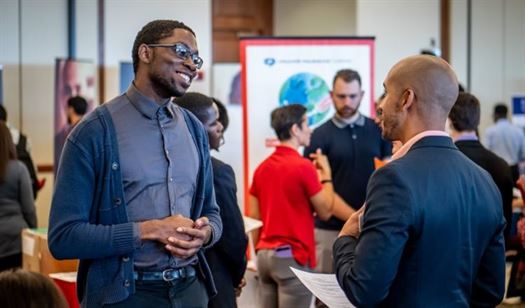If you’re in college right now, chances are you want to get hired in the field that you’re studying in. You’re studying something for four whole years or more sometimes, so you’re probably going to work a job in your field of study.
Unfortunately, the reality is not that simple.
According to a study that was conducted in 2010 by the Federal Reserve Bank of New York, only 27 percent of college grads landed a job closely related to their major, meaning 73 percent were working in areas that were unrelated to what they studied in school.
Of course, it could be argued there’s always going to be a percentage of students who change their minds about their careers or students who just get unlucky right out of the gates, but the reality is this percentage is a lot bigger than you probably thought.
Another survey conducted by OneClass more recently showed a similar finding; 57.5 percent of college graduates don’t work in their field of study.
So, why does this happen?
It’s a combination of the economic situation, geographic location and, of course, your persistence in finding your ideal job.
However, arguably the biggest factor of being underemployed is the current demand and value of your degree.
According to a study by Burning Glass, psychology majors face the highest risk of underemployment after graduation with 38 percent being underemployed in their first job and then still underemployed after five years.

A student in the College of Education and Human Services (CEHS) works with a career services counselor. Photo courtesy of Montclair State University CEHS Career Services via Facebook
The chart also shows what percentage of students are underemployed in their first job but eventually find suitable employment with their second job.
Underemployment is a serious issue and colleges should be doing more to tackle it. They can start by highlighting careers in demand more explicitly to help nudge students into degree paths that are most likely to get them employed in their field of study.
If specific skill sets are in high demand, such as Microsoft Excel proficiency or data analytics, colleges should have shorter and more intensive courses to help students supplement their degree and increase their chances of landing a relevant career after graduation.
Every year, the demand for specific jobs are changing. If we think about the previous decade, most jobs would primarily be manual and human labor. Today, most jobs require data science, artificial intelligence and machine learning as the economy is slowly switching to automation.
This issue highlights two things.
First, a lot more thought and planning needs to go into choosing what you’re going to study for the next four years. Many students decide to switch majors or programs after studying in university for three years.
It’s great if you choose to study something you’re passionate about but a lot more factors, like job prospects and career growth need to be heavily considered as well.
Second, just a degree usually isn’t enough. Since job competition is so high now in so many fields, employers are looking for things on top of your degree that supplement it, such as more relevant experience, specific skill sets and certifications. Many jobs even require years of working experience.
With the rise of companies like Coursera and Udemy offering courses on specific skill sets, students should take advantage of this and learn supplementary skills to strengthen their applications and increase their chances of working as what they envision.

Montclair State University has over 50 majors for students to choose to study. Photo courtesy of bonner.pbworks.com
Current and former Montclair State University students had different perspectives on underemployment after graduation.
Francis Holandez graduated from Montclair State in 2018 with a degree in psychology and emphasized the need for planning ahead.
“Going through school, I didn’t really think about my job prospects too much. In my program, it’s so easy to just get so wrapped up in the academics where thinking of where I’m going to work after university was just a side thought,” Holandez said. “I really wish I spent more time and energy lining up a job in my field right after university and preparing for life after school, but unfortunately I’ve had to resort to working at a restaurant for a little bit while I look for a psychology-related job opening.”
Dan Inwood, a freshman psychology major, shared that he will consider his path more seriously going forward after being informed about the potential for underemployment.
“Since this is all new and a first-time experience, I actually haven’t even thought about what’s next after university,” Inwood said. “Now that you mentioned it, I actually put more thought into it and what I want to do after I graduate. This is actually a pretty good reminder for every student because it’s always good to prepare for the unexpected.”
Sophomore communications major Tanya Tat is concerned about her job prospects but continues to take advantage of online courses to build her resume.
“To be honest, I’m a little scared that I won’t be able to get a job in the communications field for when I graduate,” Tat said. “Obviously, everyone probably has the same fear, but I really do think getting a job after university will be extremely competitive. I’m just constantly thinking of what extra to do to pad my resume and gain more experience.”
Tat hopes her education will further her more than she may believe.
“I’m taking online courses so I can be more familiar with digital-related things, like social media management platforms and website management/creation programs,” Tat said. “I just really hope I can land a job in communications right out of school because I paid a lot of money to do so.”
As much as baristas or customer service associates in your local grocery store are needed, you probably don’t want to resort to working these jobs after studying four years and paying tens of thousands of dollars in tuition.



